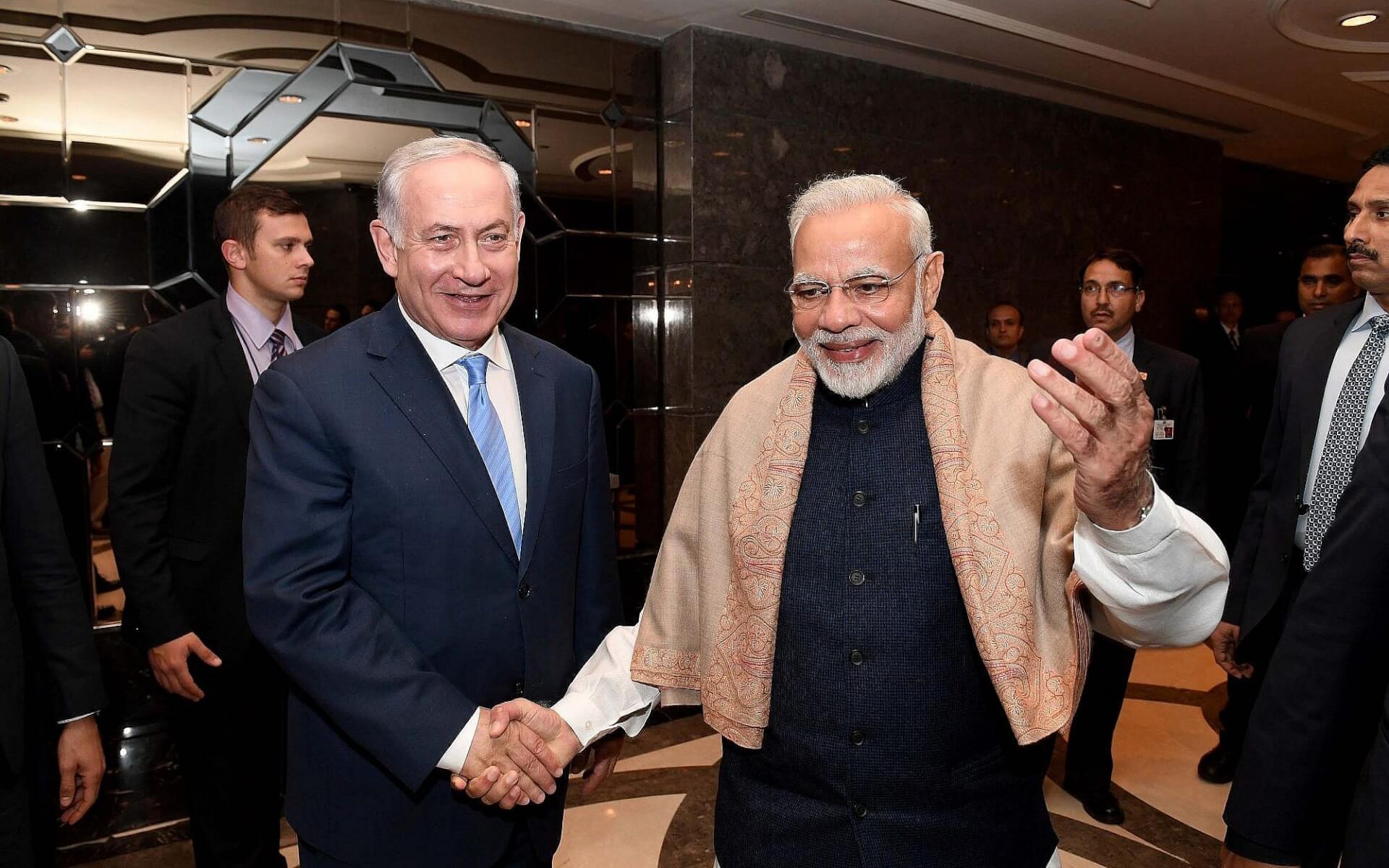Indian PM Narendra Modi and Israeli PM Benjamin Netanyahu spoke over a call on Wednesday and discussed the safety of marine traffic amid an increase in Houthi attacks in the Red Sea.
The Israeli release mentioned that the leaders also discussed expediting the arrival of Indian workers to the State of Israel.
Discussions on Red Sea Crisis
In the call initiated by the Israeli side, Netanyahu briefed the Indian PM on recent developments in the Israel-Hamas conflict.
“The two leaders discussed the importance of securing freedom of navigation in the Bab-el-Mandeb, which is threatened by the aggression of the Houthis,” the Israeli release on the meeting read.
While the Indian side made no mention of this, the Israeli PM’s office alleged that the attacks were “instigated by Iran.”
The two leaders discussed the “global interest in preventing attacks on the global economy and trade, as well as the Indian and Israeli economies.”
Modi noted that “freedom of navigation is an essential global necessity that must be ensured.”
Had a productive exchange of views with PM @netanyahu on the ongoing Israel-Hamas conflict, including shared concerns on the safety of maritime traffic. Highlighted India’s consistent stand in favour of early restoration of peace & stability in the region with continued…
— Narendra Modi (@narendramodi) December 19, 2023
Additionally, Netanyahu thanked Modi for India’s support of “Israel’s just war to eliminate the Hamas terrorist organisation.”
Meanwhile, the Indian PM reiterated the “need for continued humanitarian aid for the affected population” in Gaza.
The Indian leader also emphasised “an early and peaceful resolution of the conflict, including the release of all hostages, through dialogue and diplomacy.”
Indian Workers in Israel
Despite the Israeli release outlining talks on this issue, there was no mention of discussions on Indian workers being sent to Israel in the Indian release.
With a shortage of labour in Israel due to the cancellation of work permits of the Palestinians, Israel is seeking labourers from India.
The two countries had signed an agreement in May to facilitate the arrival of 42,000 additional Indian workers in Israel.
Reports suggested that Israel was set to hire over 100,000 Indian workers to make up for losing over 90,000 Palestinian workers owing to the war.
While the Indian Ministry of External Affairs said it was unaware of any such requests from Israel, the news drew flak from several Indian trade unions, which urged India to reject the proposal.
Situation in Red Sea; Operation Prosperity Guardian
As the Israeli offensive in Gaza continues, with over 20,000 Palestinians losing their life and over 50,000 wounded, Yemen’s Houthi rebels, said to be backed by Iran, are attacking Israel-bound commercial ships in the Red Sea.
With the increased number of attacks, the world’s largest shipping companies, including Danish A.P. Moller-Maersk, German company Hapag-Lloyd, Swiss-based MSC, and French shipping group CMA CGM, have announced a halt on their Red Sea journeys.
To counter the threat, the US has announced ‘Operation Prosperity Guardian’ to safeguard commercial ships.
The UK, Bahrain, Canada, France, Italy, the Netherlands, Norway, Seychelles, and Spain will join the US in its new mission, under which they will patrol the southern Red Sea and the Gulf of Aden.
US Defence Secretary Lloyd Austin announced Monday the expansion of an international maritime security force to safeguard commercial ships in the Red Sea against Houthis’ attacks. Read more:https://t.co/xk1qdHsqC9#US #Israel #Houthis #Palestine #Iran
— Statecraft (@statecraftdaily) December 19, 2023
The repercussions of the situation are sure to be felt by India, which is heavily reliant on the Bab el-Mandeb Strait for its crude oil, LNG, and trade needs from the Middle East, Africa, and Europe.
The Indian economy is expected to suffer from higher energy costs if India uses longer routes around the Cape of Good Hope.
Furthermore, Indian merchandise exporters predict that the freight rates for Indian shipments headed to Europe and Africa could surge by 25-30 per cent with the changed situation along the vital Red Sea route.
Indian Position
India was among the first countries to condemn the Hamas attack on Israel, but has simultaneously maintained that the humanitarian crisis in Gaza and Israeli occupation of Palestinian territory must be addressed.
On 10 October, Netanyahu talked with Modi, who expressed shock at the news of the terrorist attacks in Israel.
New Delhi also sent humanitarian aid to Palestine in the wake of Israeli attacks in Gaza.
On 27 October, India abstained from voting in favour of a resolution in the UN General Assembly, which called for an immediate humanitarian truce in the conflict.
It cited the lack of a condemnation of the 7 October “terror attack” as a reason for this abstention.
In November, India favoured a resolution condemning the Israeli settlement activities in the ‘Occupied Palestinian Territory, including East Jerusalem and the occupied Syrian Golan.’ The country has also reiterated its stance regarding a two-state solution for the conflict several times since the war began.
Recently, India voted in favour of a resolution resolution calling for an “immediate humanitarian ceasefire” and the unconditional release of all hostages held by Hamas.
With the developing crisis in the Red Sea, it remains to be seen how India continues its balancing act concerning the war.

